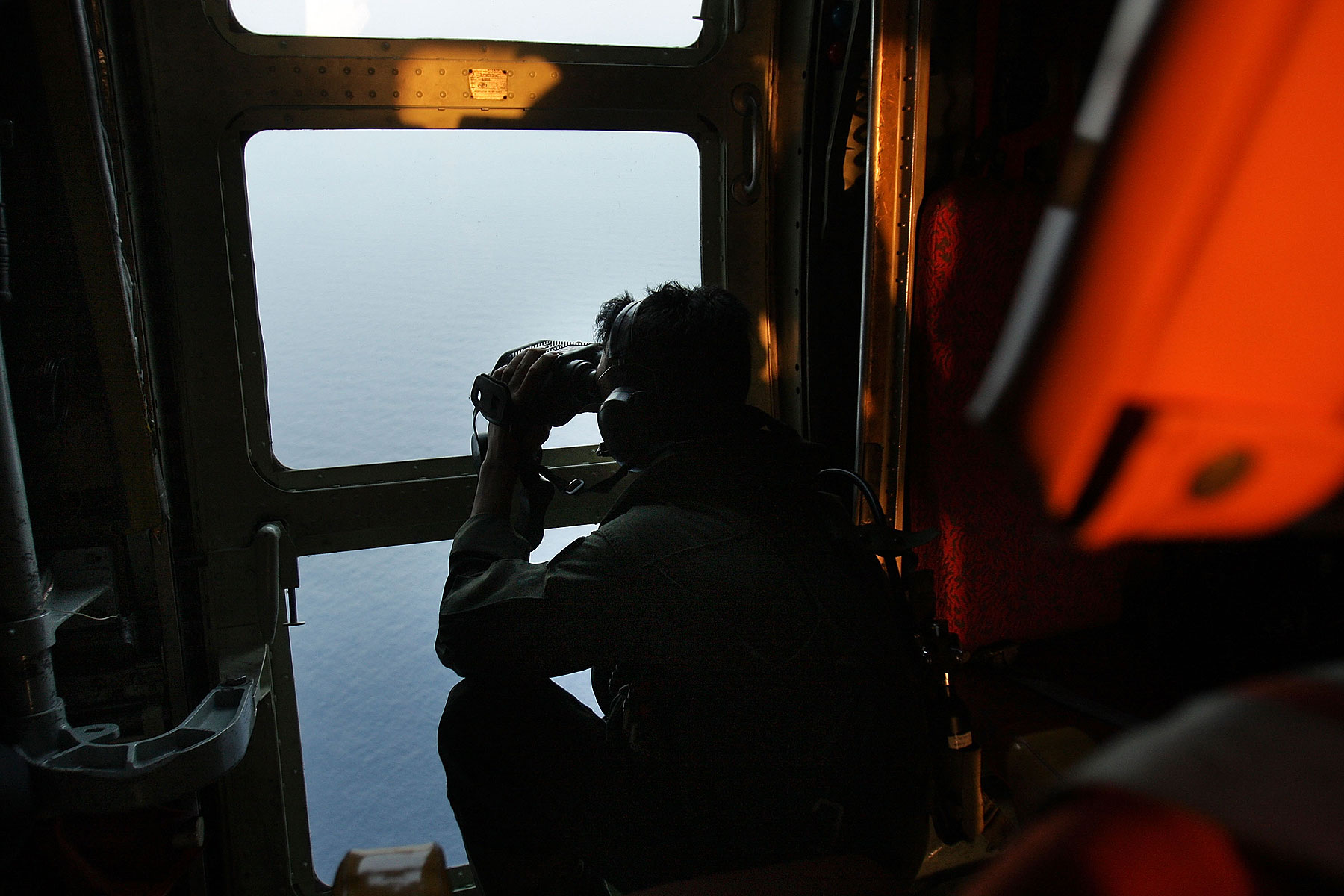
Updated: 7:17 a.m. EST on Thursday
Malaysia’s defense minister denied reports Thursday that the Missing Malaysia Airlines Flight MH370 may have stayed airborne for as much as four hours after it was lost from radar screens, the Associated Press reports.
The Wall Street Journal reported earlier Thursday that U.S. investigators and national-security officials believe that data automatically downloaded and sent to a maintenance-and-monitoring program from the aircraft’s two Rolls-Royce Trent 800 engines indicated that the plane may have remained in the air for much longer than previously believed.
That would mean the plane may have traveled more than 2,000 additional nautical miles, reaching points as far as the Pakistani border or even the Arabian Sea, said the Journal.
Acting Defense Minister Hishammuddin Hussein said that Rolls-Royce and Boeing, the maker of the Boeing 777, had denied the report, according to the AP.
Erin Atan, Rolls-Royce head of Asia-Pacific and Middle East communications, was unable to confirm or deny the Wall Street Journal reporter earlier when contacted by TIME, citing the terms of sharing information relating to an official accident investigation.
“We are monitoring the situation, and we have offered Malaysia Airlines and related parties all cooperation from the outset,” she said, naturally raising questions as to why this information, if accurate, was not shared with passengers’ families earlier.
On Wednesday, U.S. officials told AFP that American spy satellites detected no sign of a mid-air explosion when the jet vanished. Heat signatures from exploding aircraft have been used as a clue in previous incidents but none was spotted in this case, said the officials, who spoke on condition of anonymity.
The Wall Street Journal report appeared to widen rather than shrink the search for Flight 370, which has entered its sixth day. Debris spotted in the South China Sea by Chinese satellites on Sunday — but only released overnight — has since been dismissed by Vietnamese officials who claim the area had already been “searched thoroughly.”
India has also now agreed to help out with efforts. “Malaysia and India are in contact on this since yesterday and contact points are being discussed. These contact points will ascertain what assistance is required and what India can offer,” a spokesman at New Delhi’s Foreign Ministry said on Wednesday.
India boasts a large military command in its territory in the Andaman and Nicobar islands and operates navy patrols in the busy shipping routes of the Malacca Strait.
Flight 370 took off from the Malaysian capital Kuala Lumpur at 12:41 a.m. on Saturday, heading for Beijing, with 227 passengers and 12 crew on board. Contact with Malaysian air-traffic control was lost after some 40 minutes over the Gulf of Thailand, at a height of around 10,700 m.
Vietnamese air-traffic control says the plane never entered its airspace, and conflicting reports have emerged that it may have turned back and been spotted by military radar on the northeastern side of the Malay Peninsula by Pulau Perak. No distress call was received.
A dozen countries are taking part in the search, with 42 ships and 39 aircraft involved. But efforts have been plagued with confusion and contradictory reports, and complaints increasingly hurled at the Malaysian authorities.
At his end of Congress press conference on Thursday, Chinese Premier Li Keqiang revealed that the superpower had eight boats and 10 satellites trying to locate the plane. “As long as there is a glimmer of hope, we will not stop searching for the plane,” he told reporters gathered at Beijing’s Great Hall of the People. Of the 239 people on board, 153 were Chinese.
More Must-Reads from TIME
- Cybersecurity Experts Are Sounding the Alarm on DOGE
- Meet the 2025 Women of the Year
- The Harsh Truth About Disability Inclusion
- Why Do More Young Adults Have Cancer?
- Colman Domingo Leads With Radical Love
- How to Get Better at Doing Things Alone
- Michelle Zauner Stares Down the Darkness
Write to Charlie Campbell at charlie.campbell@time.com